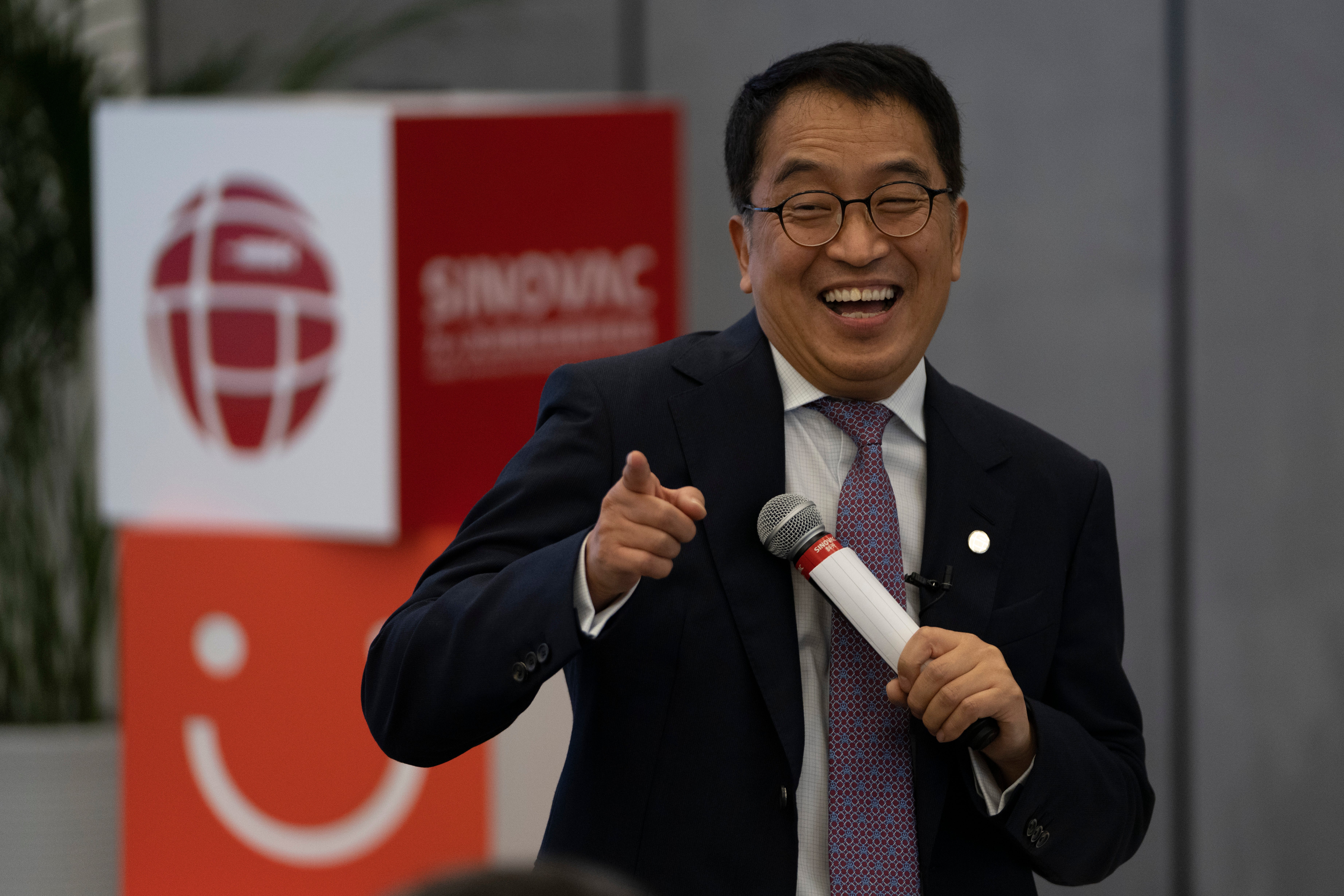Coronavirus vaccine to be ready globally in early 2021, Chinese company claims
A Chinese pharmaceutical company says its coronavirus vaccine candidate will be ready for the world by early next year

A Chinese pharmaceutical company has claimed the coronavirus vaccine it is working to develop should be ready for worldwide distribution by early 2021.
The vaccine is one of four currently being developed in China, with SinoVac chief executive Yin Weidong saying he hoped to be able to distribute the treatment to countries including the US and Europe.
"At the very beginning, our strategy was designed for China and for Wuhan,” Mr Yin said, referring to the central Chinese city that became the epicentre of the virus in late 2019. “Soon after that in June and July we adjusted our strategy, that is to face the world,"
Chinese vaccines have been traditionally blocked by governments in the US, Europe, Japan and Australia, but the firm hopes to be able to sidestep regulations as the pandemic continues to spread.
"Our goal is to provide the vaccine to the world including the US, EU and others," Mr Yin added.
Governments across the globe have poured funding into vaccine programmes to stem the spread of the virus which has killed some 979,000 people worldwide and infected 32 million.
And while more than 170 nations have rallied around the World Health Organization’s COVAX programme - which seeks to counterract so-called ‘vaccine nationalism’ by ensuring widespread distribution - China, long with Russia and the US, has opted out of the scheme.
Alongside SinoVac, other leading vaccine programmes in the country include military-affiliated CanSino and the state controlled Sinofarm, which has two in operation.
Its CoronaVac trial currently includes 24,000 participants across Brazil, Turkey and Indonesia. Further trials are scheduled the Bangladesh and possibly Chile.
Mr Yin said the firm had chosen those locations due to their serious outbreaks and limited capacity for research and development.
The company projects it will be able to produce a few hundred million doses of the vaccine by February or March of next year - with priority given to those countries hosting human trials.
Small doses are also being tested on the elderly and children within the borders of China in response to growing reported cases globally in the two age groups. Despite not having yet passed the third phase of clinical trials, tens of thousands in China have already been injected with the treatment as part of an emergency provision.
Beijing had previously permitted the “emergency use" of potential vaccines that were under development for at-risk populations like border personnel and medical workers if companies could show "good safety and good antibodies" from tests of about 1,000 people.
Around 90 per cent of SinoVac staff have also received the treatment, which has not yet had its efficacy proven, including Mr Yin, who was among its first recipients.
"This is kind of a tradition of our company," he told reporters on a factory tour, adding that he had done the same with a hepatitis vaccine under development.
Additional reporting by AP

Bookmark popover
Removed from bookmarks